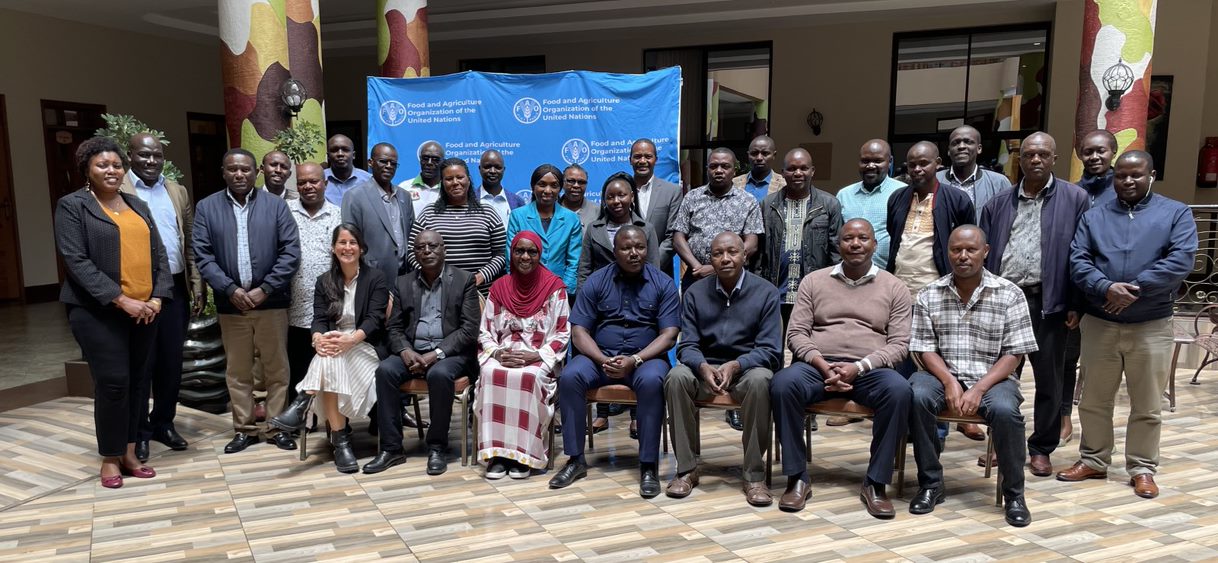Enhancing policy coherence and institutional capacity on livestock climate actions in Kenya
Kenya finalizes stock take reporting on national livestock policies and alignment with nationally determined contributions (NDC) and strengthen capacity on assessment of greenhouse gas emissions in the livestock sector.

Livestock plays a pivotal role in Kenya's economy, supporting the livelihoods of a significant portion of the population. However, the sector faces unprecedented challenges due to climate change, particularly in the arid and semi-arid lands, where frequent and severe events like droughts and floods impact pastoral communities.
In response to these challenges, the Food and Agriculture Organization of the United Nations (FAO), the Ministry of Agriculture and Livestock Development (MoALD) of Kenya, and the Climate and Clean Air Coalition (CCAC) have united to address climate issues within the livestock sector.
Background
Kenya's economy heavily depends on sectors like agriculture, with livestock production facing significant climate change threats. Over 80 percent of the country's livestock is located in arid and semi-arid lands, making the sub-sector highly vulnerable. Compounding the challenge, livestock contributes over 90 percent of agricultural greenhouse gas (GHG) emissions and 20 percent of Kenya's total GHG emissions, underscoring the need for a swift transition to sustainable livestock practices.
Aligned with the Paris Agreement, Kenya's nationally determined contribution (NDC) commits to both climate mitigation and adaptation. The mitigation goal is to reduce greenhouse gas emissions by 32 percent by 2030, emphasizing the urgent need for sustainable livestock production.
Workshop highlights
From 13 to 14 November, stakeholders convened in Naivasha to finalize a comprehensive stocktaking report on Kenya's livestock sub-sector. The report, resulting from extensive stakeholder reviews, assesses policy effectiveness, identifies gaps, proposes mitigation measures, and aligns with national development plans. It serves as a guide for the State Department for Livestock Development (SDLD) in enhancing policy coherence and promoting sustainable practices.
Training session
From 15 to 17 November 2023, a hands-on training session in Naivasha aimed to fortify climate initiatives within Kenya's livestock industry. Thirty participants from diverse sectors engaged in theoretical knowledge and practical exercises, focusing on greenhouse gas emissions assessment using the IPCC Tier 2 approach, enteric methane emissions, and relevant tools. The training yielded concrete results:
- Strengthened institutional capacity for managing the greenhouse gas inventory process.
- Enhanced national capacity for collecting, preparing, archiving, documenting, and reporting activity data.
- Advanced capacity to identify and assess the impact of specific mitigation actions.
- Improved institutional capacity to develop bankable proposals, facilitating access to funds for implementing mitigation policies and measures.
This collaborative effort signifies a crucial step towards building a more climate-resilient and sustainable future for Kenya, with the livestock sector playing a pivotal role in ensuring food security while combating climate change.
